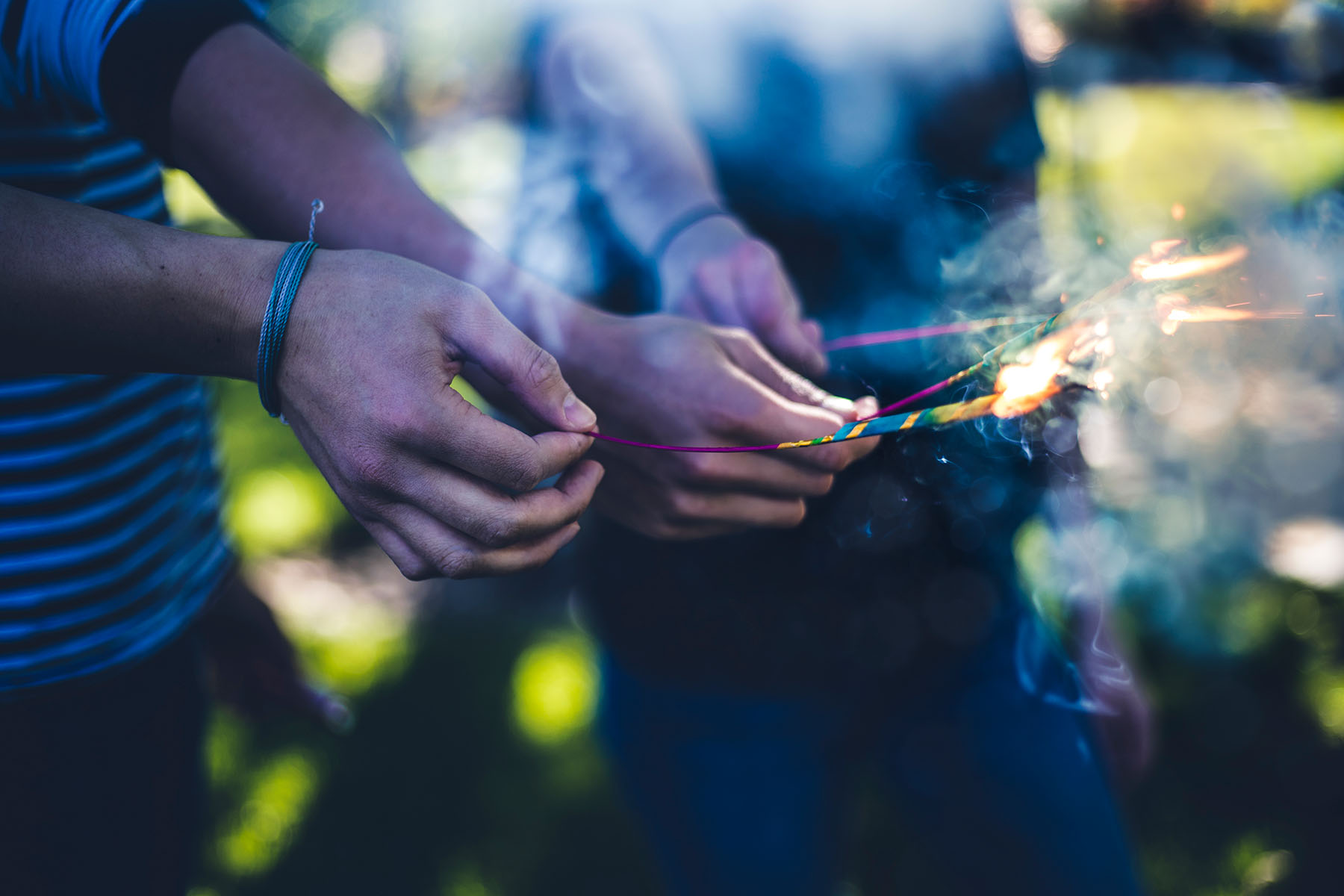Top Eye Safety Tips for the 4th of July

On Independence Day, many people look forward to celebrating with friends and family while enjoying some fun in the sun, barbeques, and of course, fireworks. While fireworks can be exciting, please remember to practice proper eye safety.
“Fireworks can cause severe and sometimes irreversible eye injuries. Nearly half of the victims are bystanders and children. It is important to exercise caution when using or watching fireworks of any kind,” says Kara M. Cavuoto, M.D., an ophthalmologist at Bascom Palmer Eye Institute, part of the University of Miami Health System.
According to the U.S. Consumer Product Safety Commission (USCPSC) Report, there were an estimated 11,500 emergency room-treated injuries involving fireworks in 2021.
Common eye injuries include burns, lacerations, abrasions, retinal detachments, optic nerve damage, and ruptured eyeballs. Of the nearly 12,000 injuries, there were 1,500 eye injuries involving firecrackers and 1,100 involving sparklers. It’s important to note that sparklers, firecrackers, and bottle rockets are frequently and falsely advertised as safe for young children. In fact, according to the USCPSC, half of the reported sparkler injuries in 2019 involved children younger than 5.
“Even sparklers can permanently damage the eye,” says Dr. Cavuoto. “Sparklers are not toys, and children should not play with them.”
If the adults in your family decide to have fireworks in the backyard, follow these guidelines to prevent eye injuries:
- Do not fire off homemade fireworks.
- EVERYONE handling fireworks and close bystanders should wear protective eyewear.
- Inebriated people should not use fireworks.
- Keep a pail of water or a garden hose nearby in case of fire or flames.
- Do not relight or handle a malfunctioning firework. Soak it with water and dispose of it properly.
- Soak all fireworks that have finished burning before throwing them away to prevent a trash fire.
If you are injured by fireworks:
- Get immediate medical help.
- If a particle gets in your eye, do not touch or rub it.
- Do not rinse your eyes.
- If a sharp object enters your eye, do not pull it out. Put a loose bandage on the eye and do not apply pressure. Go to a hospital emergency room immediately.
- Do not apply ointments or take blood-thinning pain medications such as ibuprofen or aspirin.
It is also important to remember that many states and towns have laws regulating the use of fireworks. For instance, in Florida, people must have a permit to set off fireworks unless it is the Fourth of July, New Year’s Eve, or New Year’s Day.
So, rather than risk a fine or eye injury, it may be better to forego the fireworks.
Updated by Nancy Moreland. Previous versions were crafted by Natasha Bright and Nancy Moreland, UHealth Collective contributors.
Originally published on: July 02, 2020
Tags: Bascom Palmer Eye Institute, Dr. Kara M. Cavuoto, eye protection, fireworks eye injury, July 4
